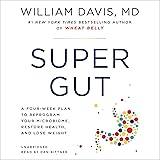The video above offers quick advice on choosing the best nuts for health, focusing on weight management and energy. Understanding which nuts support your goals is crucial. Some nuts provide superior nutritional benefits for achieving a leaner physique and sustained energy levels.
Choosing Healthy Nuts for Weight Management and Energy
Selecting the right nuts profoundly impacts your well-being. Nuts offer healthy fats, protein, and fiber. These elements are key for satiety and consistent energy.
However, not all nuts are created equal. Their unique macronutrient profiles dictate their effects. Making informed choices helps you reach your health goals faster.
The Best Nuts for Health: Powerhouses of Nutrition
As highlighted, certain nuts stand out. These options are packed with beneficial compounds. They actively support energy and a healthy weight.
Walnuts: Brain and Body Boosters
Walnuts are exceptional for overall health. They are rich in omega-3 fatty acids. This nutrient supports brain function and reduces inflammation.
Walnuts also contain powerful antioxidants. These compounds protect cells from damage. Including them can significantly boost your diet.
Pecans: Antioxidant-Rich and Heart-Healthy
Pecans are another excellent choice. They are loaded with antioxidants like ellagic acid. These fight oxidative stress effectively.
Pecans offer heart-healthy monounsaturated fats. These fats help manage cholesterol levels. They contribute to a feeling of fullness too.
Pistachios: Fiber, Protein, and Portion Control
Pistachios are a balanced option. They provide a good mix of protein and fiber. This combination promotes satiety, helping with weight control.
Eating pistachios in their shells can slow consumption. This encourages mindful eating naturally. They are also lower in calories per serving than some other nuts.
Nuts to Limit for Optimal Health and Weight
Conversely, some nuts may not align with certain health goals. The video specifically mentions peanuts and cashews. Understanding why helps make better dietary decisions.
Peanuts: The Legume Debate
Peanuts are technically legumes, not tree nuts. They differ nutritionally from true nuts. Peanuts contain compounds like lectins and phytic acid.
These compounds can sometimes cause digestive issues. They might also interfere with nutrient absorption. Many commercial peanuts are roasted in unhealthy oils and heavily salted.
Cashews: Carbohydrate Content and Processing
Cashews offer many nutrients, but they have a higher carbohydrate content. This might be a consideration for some diets. Often, cashews are roasted and salted.
Such processing adds unnecessary fats and sodium. While not inherently “bad,” they may not be the optimal choice for slimming down. Moderation is often key with cashews.
Beyond the “Best” and “Worst”: Understanding Nutrients
The impact of nuts extends beyond simple categories. Focus on their nutritional composition. Healthy fats, fiber, and protein are universal benefits.
Different nuts offer diverse micronutrients. These include vitamins, minerals, and antioxidants. A variety of healthy nuts ensures comprehensive nutrient intake.
Healthy Fats: Fueling Your Body
All nuts contain healthy fats. Monounsaturated and polyunsaturated fats are vital. They support cell growth and nutrient absorption.
These fats also provide sustained energy. They prevent energy crashes, unlike simple carbohydrates. Choosing nuts with better fat profiles is beneficial.
Fiber: Digestive Health and Satiety
Nuts are excellent sources of dietary fiber. Fiber promotes healthy digestion. It also helps you feel full for longer periods.
This feeling of satiety reduces overeating. It is a powerful tool for weight management. Adequate fiber intake also stabilizes blood sugar levels.
Protein: Building Blocks for Energy
Plant-based protein is abundant in nuts. Protein is essential for muscle repair and growth. It also contributes to prolonged fullness.
Including protein-rich nuts in your diet is smart. It helps maintain energy levels throughout the day. This supports an active and healthy lifestyle.
Incorporating Healthy Nuts into Your Diet
Adding beneficial nuts to your daily routine is simple. Use them as snacks between meals. They provide a quick and nutritious energy boost.
Sprinkle them over salads for crunch and flavor. Incorporate them into oatmeal or yogurt. These additions enhance both taste and nutritional value.
Ensure portion control remains a priority. Even the best nuts are calorie-dense. A small handful is typically sufficient for a serving.
Choose raw or dry-roasted varieties whenever possible. Avoid nuts roasted in unhealthy oils. Limit those with added salt or sugar for optimal health. Consistently choosing healthy nuts supports your journey to better health and sustained energy.
Shelling Out Answers: Your Nut Health Q&A
What are the main benefits of adding nuts to my diet?
Nuts offer healthy fats, protein, and fiber, which can help you feel full longer and provide sustained energy. They are also packed with important vitamins, minerals, and antioxidants.
Which nuts are considered the best choices for overall health and energy?
Walnuts, pecans, and pistachios are highlighted as excellent choices. Walnuts are rich in omega-3s, pecans are great for heart health, and pistachios offer a good balance of protein and fiber.
Are there any specific nuts I should try to limit or be cautious about?
The article suggests limiting peanuts and cashews. Peanuts are technically legumes and can contain compounds that interfere with nutrient absorption, while cashews are higher in carbohydrates and often heavily processed.
How can I easily add healthy nuts to my meals or snacks?
You can enjoy nuts as a quick snack between meals, sprinkle them over salads, or mix them into oatmeal or yogurt. Just remember to practice portion control, as nuts are calorie-dense.











